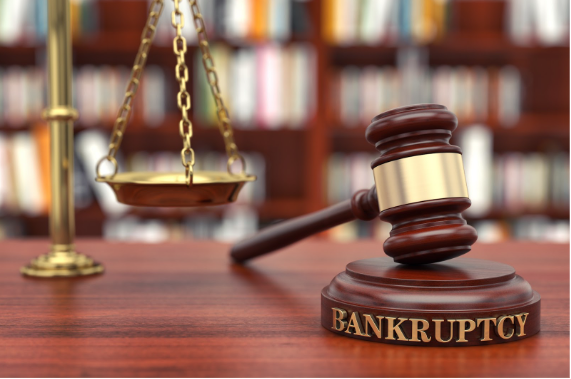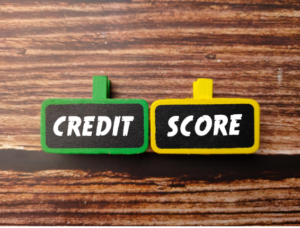
What do I do After Bankruptcy?
Filing for bankruptcy is a big decision, and it’s completely normal to feel a mix of relief and worry once it’s done. You might be relieved because those overwhelming debts are finally off your back, but you might also be worried about what comes next. How will this affect your credit? What will people think? First of all, you’re not alone. Many people go through this, and it’s not the end of the world. In fact, consider it a fresh start—a chance to reset your financial life. In this blog, we’ll guide you through the steps you can take to recover and rebuild after bankruptcy.
Understanding the Legal Way to Debt-freedom in Canada
Bankruptcy isn’t a one-size-fits-all situation. In Canada, you might have heard about personal bankruptcy and consumer proposal. Knowing which type you’ve filed for is crucial because it affects your recovery path.
Each type comes with its own set of rules, pros, and cons. Personal bankruptcy is often quicker but might require you to sell off some assets. A consumer proposal takes longer but usually lets you keep your property and can be less damaging to your credit score.
Steps to Take Immediately After Bankruptcy
So, you’ve completed the bankruptcy process. It’s like hitting the reset button on your financial life. But what should you do first?
Assess Remaining Debts
Bankruptcy doesn’t wipe out all kinds of debt. For example, if you have student loans less than seven years old or owe child support, those won’t be erased. Make a list of what’s left so you can prioritize.
Taking immediate actions like these can be empowering. It’s like saying, “I’m in control now. I’m taking steps to fix this.” Plus, these actions will set the stage for the longer-term recovery steps you’ll need to take, which we’ll explore in the following section.
Rebuilding Your Credit Score

Your credit score took a hit after bankruptcy; there’s no way around that. But the good news is, it’s not permanent. Here’s how to start building it back up.
- Secured Credit Cards: One of the simplest ways to begin is by getting a secured credit card. Unlike regular cards, these require a cash deposit that serves as your credit limit. Use it for small, manageable purchases and pay off the balance in full every month. This shows creditors you’re responsible and can be trusted with credit again.
- Installment Loans: Another option is taking out a small installment loan, which you’ll pay back in set amounts over time. This could be for something practical like a car repair. The key is to make every single payment on time, which will positively affect your credit score.
Improving your credit score won’t happen overnight. But each positive action you take adds up, slowly changing the narrative from “high risk” to “financially responsible.” And remember, consistency is your best friend here. The longer you maintain good financial habits, the faster your credit score will improve.
Setting New Financial Goals
With the bankruptcy behind you, it’s time to look ahead. Setting new financial goals gives you a roadmap for a more secure future. Here’s how to get started:
- Emergency Fund: One of the first goals should be establishing an emergency fund. Financial advisors often recommend saving at least three to six months’ worth of living expenses. This provides a safety net for unexpected events like a job loss or medical emergency.
- Budgeting: Now that you’ve hit the reset button on your finances, make budgeting a priority. Track your income and expenses, identify areas where you can cut back, and stick to the plan.
- Investing for the Future: Don’t shy away from long-term financial planning just because you’ve experienced bankruptcy. Whether it’s saving for retirement, buying a home, or investing in education, start making plans and setting aside money.
- Debt Management: Make a pledge to handle any future debts responsibly. Always read the fine print, know the interest rates, and make timely payments.
Having clear financial goals can change your perspective from mere survival to actively planning for a brighter future. Your past doesn’t have to define you, and with the right goals in place, you can chart a new financial course for yourself.
Prioritizing Financial Literacy and Education

Bankruptcy may have been a difficult chapter in your life, but it can also serve as a learning experience. Financial literacy is the key to avoiding similar pitfalls in the future. Here’s how to go about it:
- Educational Resources: There are lots of books, online courses, and workshops dedicated to personal finance. Invest some time in educating yourself about budgeting, investing, and other financial basics. You can do this by following our blog posts.
- Consult a Financial Advisor: Sometimes you need personalized guidance, and that’s where a financial advisor comes in. They can help you tailor your financial strategies and offer professional insights you may not have considered.
Being financially literate is a proactive way to take control of your finances and your life. Think of it as equipping yourself with the tools you’ll need to navigate any financial challenges that come your way in the future.
Conclusion
It’s possible you are in debt and thinking bankruptcy is the only solution. Well, that’s not true. Bankruptcy is usually considered as a last resort. So it’s good that you speak with one of our debt experts at EmpireOne Credit to get a personalized solution that will give you peace of mind without necessarily losing your assets. You can reduce your debt by up to 80%, and interest will stop immediately. Call us at (416) 900-2324 to schedule a free consultation. Being debt-free feels good!





